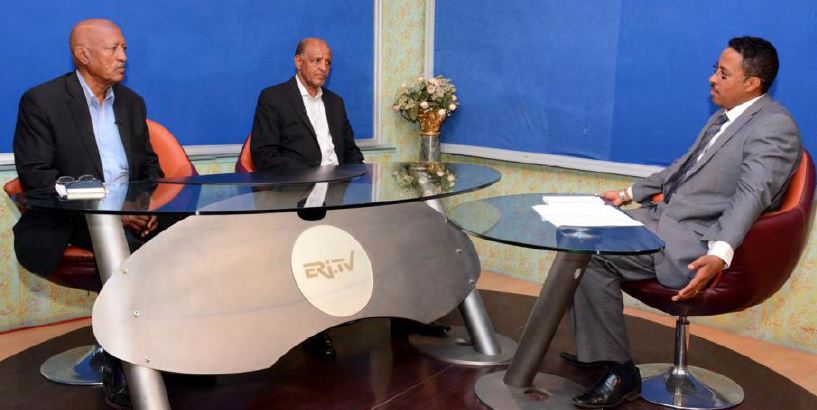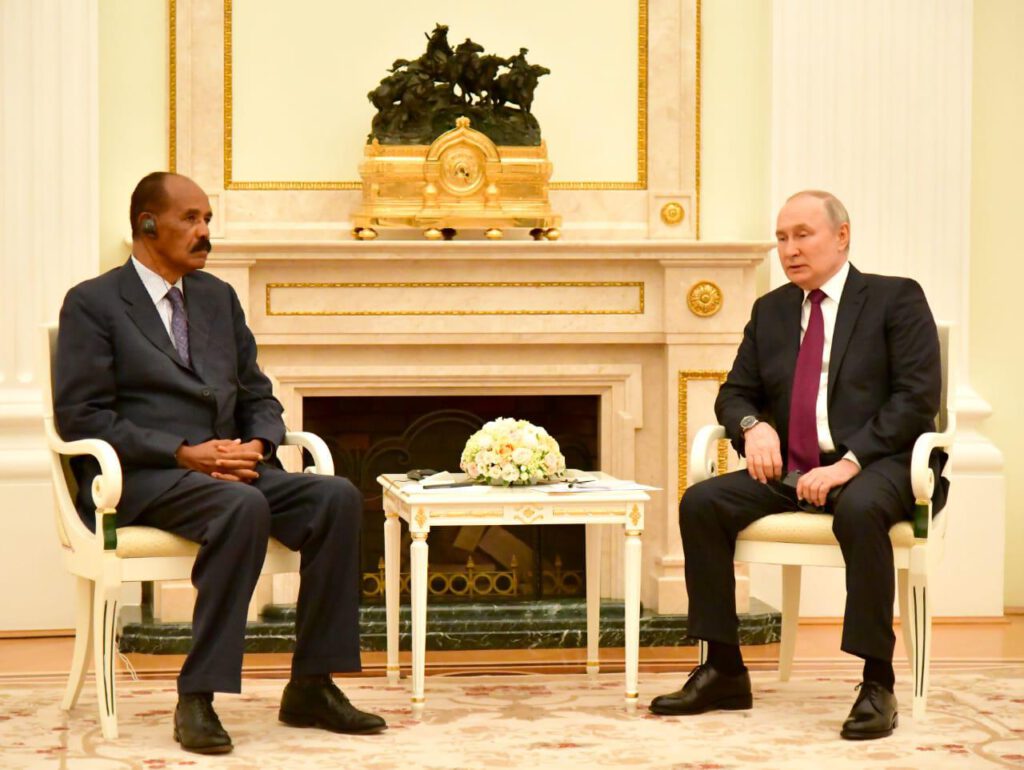November 25, 2017
Provision of quality education timely task

Education is important in a nation’s development. As a crucial pillar that contributes most to the human resource, it is highly regarded as an essential ingredient to the economic, social and psychological transformation of people and a nation. Education is one of the sectors that had to be quickly restored after Eritrea’s independence. The Ministry of Education has been working to make education accessible by building schools in every corner of the nation.
In line with the policy of the government that promotes “Education for All”, the Ministry of Education has been making efforts to ensure that that there is a school every five to six kilometers. Educational equity is measured in terms of gender, towns and villages as well as distance students have to travel to get access of education. Mr. Semere Russom, Minister of Education, said that at a national level overall there is more than 45% enrollment and female enrollment has been showing a promising progress.
The Minister believes that the diminishing traditional misconceptions of the value of education has enabled such progress. The short term plan of the Ministry is to increase this figure by providing access to citizens who have not yet been enrolled. Enrollment in schools has been increasing over the years. Early in post-independence days, around 200,000 students were enrolled from elementary to high school which has now reached more than 702,000. Moreover, those who have not yet got access to education have been identified and efforts are underway to provide them equal opportunities.
The main agenda of these days is to answer the question whether students have been to school or took a lesson in a day. This encourages addressing the qualityof education and polishing it simultaneously. If education at any level is to improve, it needs a package of resources. Schools need instructors, water and electricity, laboratory, library, workshops, the internet, recreation center, security and safety in school compound and surrounding area. There are around 200 junior and senior high schools that have been introducing students to technology since the academic years of 2005/2006. Throughout the country, there are over 1,800 schools at all levels of education.
Education is a process that goes parallel to the national development plans. To improve the system so far provided, a road map has been drafted by the Ministry as a guideline for a need driven quality education. The road map is believed to measure the performance of students and help them track future pathways based on their individual interests and performances. This process is already initiated in junior schools and further steps will be taken to apply it to higher levels. The road map gives worm’s eye view where the developing human resource will step into. Dr. Haile Mihtsun, Head of the Commission for Higher Education says that the road map is a smart strategy with a possibility to bring qualified instructors who will identify child psychology, growth and development as well as intelligence level of children in comparison with their ages. It is an exit strategy that should be implemented for students, whether academically or vocationally taught. Tracking students’ performance is the means to develop and guide them towards specific fields of study.
Skill development endeavors is also another educational process the Ministry is giving attention to. The eight intermediate technical schools across the country as well as the Center of Vocational Training (CEVOT) in Sawa provide the ultimate skill oriented training programs. The fact that it is not enough to absorb only academic education for human resource development, has enabled the advancement of these technical schools. According to the officials’ expectation, with their modern equipment for skill training these technical schools will admit higher number of the youth.
Hiring instructors from higher education institutions and training instructors in high number from the Asmara Community College (ACC) has been ongoing to overcome shortage of instructors. The biggest issue raised in the teaching profession is that people used to be recruited without their interests. Since 2014, however, the ACC started recruiting instructors who are interested in teaching, and 600 instructors has already been trained and assigned to schools to teach. Beyond satisfying the local demands, the long term goal of the Ministry is to supply qualified instructors to teach overseas.
One of the biggest achievements registered in the Education sector is the elementary school national curriculum that has been completed for every ethnic group. This allows students to learn in a language they are familiar with. Education through the mother tongue is highly credited and a remedy for many problems students might face in the teaching-learning process. Research in mother tongue education is regularly carried out with the aim to implement the same policy in higher education.
Education for disabled students is another priority area the Ministry works on. There have been small and privately owned institutions for these students. In Keren, the school of deaf students was not able to accommodate more than 150 students. The Abraha Bahta School for the vision impaired students in Asmara was only teaching up to the fifth grade and the students had to go for their junior school education to other schools that are not made for the blind. But now, these students are able to continue their education at boarding schools. For students with down syndrome and autism, missionary churches have been engaged; yet their facilities could not accommodate the national demand. To address the problem the Ministry has made plans to establish such schools.
There has not been much progress in pre-school development which is considered a weakness, particularly in remote areas. As a temporary solution, elementary schools are reserving some of their classrooms for kindergartens.
Minister Semere says that private schools are part of the educational policy; yet improving the public schools is the priority, to prevent people from incurring extra expenses. In order not cause an imbalance between the educational and national development plans, public schools are made to improve and be stronger by investing in their human resource and quality of education. The mission is to encourage competition and introduce quality education as much as possible, the Minister added.
Higher education, as part of the educational system, strives to produce excellent citizens who will participate in the national development activities of the country. As of now, higher education institutes enroll 12,000 students with 700 instructors out of which the 200 are expatriates. From the 500 local instructors 60% are graduate assistants. Dr. Haile Mihtsun said that opening educational institutions should be need-driven. The potential lessons provided have to be absorbed by students and institutions have to accept them after they graduate. Dr. Haile further said that there should be a strong relationship among stakeholders to absorb the developed human resources. It is obvious that with a spontaneous educational system quality can be overlooked, and as the number of students increase with time more educational infrastructural arrangements are required. Aiming for the bigger picture, educational quality becomes the main issue of discussion, as long as it contributes to employment opportunities the country can offer. Quality education requires the introduction of new technologies which can directly affect student’s ability of absorbing the lessons more effectively.
Upgrading levels of education within the higher education has been granted to students bluntly for years. The Higher Commission has decided to suspend such moves to create equal opportunities to newly admitted students, to use the respective skills of the developed manpower in the national development activities. Hence, doing so will open space for new comers. People are currently made to learn, graduate, work and possibly upgrade their levels after some occupational years. The Commission is on a huge restructuring program to provide an efficient, quality and need-driven education. Some Eritrean colleges are giving post-graduate education and some others have plans to start soon. The positive educational activities of the Ministry are reflections of the plans and goals that should be executed to benefit the people of the country. According to the officials of the sector, the youth have to be educated, and learn skills to survive and be part of the competitive world.
Education is a continuous process that is technically and academically upgraded through time. The government is investing a lot in making sure that all that is said is done in the sector. The present educational road map aims to bring quality-based education into the Eritrean educational system.



